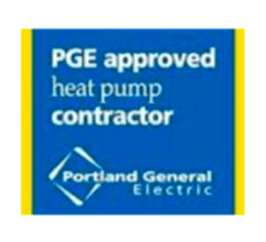As our winter weather becomes harsher and the summer power grid becomes stressed during heat waves more people are experiencing regular power outages. If you are concerned about being left in the dark for days then a whole home generator is a peace-of-mind investment that may be something for you to consider.
Most homeowners who are looking to install a home generator put cost as a major deciding factor. Home generator installation cost varies depending on the type you choose, the size of your home, and other factors that we will discuss in this blog so you can decide for yourself.
What is a Whole Home Generator?
When the electricity flickers out, whole home generators spring instantly into action providing reliable backup power, and ensuring your home stays fully powered even during extended outages. Also known as standby generators or backup generators, they run on natural gas or propane.
Whole home generators are built with longevity in mind making them a long-term investment for your home.
How Does a Whole Home Generator Work?
Whole home generators come in two parts: an outdoor unit and an indoor control panel with a transfer switch that disconnects the panel from the utility service while the generator is running to prevent back feeding and energizing the line.
In normal circumstances the generator is idle, but when the power goes out it automatically turns on and transfers power from the generator to your home’s electrical system. After the electricity comes back on, the generator will shut off and return to its idle state.
This seamless transition ensures that you never have to worry about your critical home systems working.
Advantages of Whole Home Generators
While a portable generator can provide basic power to your home when the electricity goes out, standby generators have some distinct advantages that make them a good investment, such as:
- No fuel storage – since a home generator runs on natural gas or liquid propane (LP), so there is no need to store gasoline (and you avoid the dangers that can bring)
- No extension cords – since a standby generator is permanently attached to your home there’s no need to spend time setting it up or use numerous extension cords.
- Fully automatic – a whole house starts and powers your house within seconds after an outage – even when you aren’t home. No need to stumble around in the dark.
- Increased home value – home improvements that bring convenience and safety are good for you and for buyers when you go to sell your home.
- Protect your home — loss of heating, frozen pipes, and power surges can cause damage to your home during a power outage. Keeping your electricity even when you are away from home protects you from expensive damage costs.
Additional Reading: 10 Valuable Advantages of Whole Home Generators
Factors That Affect the Cost of Installing a Whole Home Generator
Backup generator installation costs can differ for each home which is determined by multiple variables. Below we will outline the factors that influence how much a home generator installation will cost and what to look for when you shop.
1. Generator Size
Like most anything, the size of a home generator significantly affects the cost. Smaller generators are generally cheaper and are ideal for powering basic appliances or for providing backup power to a single circuit in your home.
Larger generators, on the other hand, can power an entire house during an outage and typically have additional features that come at a higher price point. Regardless of the size you choose, be sure to factor in installation costs, fuel usage, and maintenance fees when comparing prices.
2. Type of Fuel
Natural gas is the main fuel type that Jacobs Heating & Air Conditioning installs. The cost difference depends on what you have available in your area. Whole home generators that run on natural gas can be cheaper to install if you have a gas line already installed on your property.
On the other hand, generators running on propane may have higher upfront costs due to the installation of a propane gas tank. Be sure to consider the total cost of ownership when choosing the type of fuel for your generator.
3. Brand & Model
You should take into account the variety of features offered by the particular home generator brand and model including the maintenance costs associated with it.
Different brands have different strengths and warranties that may benefit the way you use your generator – researching those thoroughly can save you money in the long run. Jacobs installs Honeywell Powered by Generac models due to their reliability, warranties, and features.
4. Installation Requirements
The installation requirements for the generator can impact the cost. For instance, you may need to install a dedicated gas line for your generator or a propane tank, adding to the installation cost.
Furthermore, the electrical work required to set up your new generator varies depending on your home’s existing wiring and systems. If modifications are needed or additional work is required, this will result in higher costs compared to having a plug-and-play system already in place.
5. Permitting and Inspection
Depending on where you live, you may need to obtain permits and inspections before installing a generator. Some cities charge for permits which could add to the total installation cost of your home generator.
6. Labor
The cost of labor for the installation of a home generator can vary greatly depending on the complexity of the project and the contractor you choose. Some contractors may charge by the hour, while others may offer a flat rate for installation costs.
Additionally, the experience level of your chosen contractor is also an important factor to take into consideration – more experienced contractors will be able to perform the job more efficiently, saving you time and money in the long run. You will also need an experienced electrician who knows the local code for installing a whole home generator.
7. Additional Features & Accessories
Many home generator systems come with additional features that can be added to the installation such as:
Automatic transfer switches – designed to detect power outages and automatically start up your generator when it detects one. This can add convenience, but will also add to the overall cost of the installation.
Remote monitoring capabilities – allow you to manage and monitor your home generator from afar using a mobile device or computer.
Average Cost of Installing a Whole Home Generator
Installing a standby generator can cost on average between $20,000 and $25,000. This price can vary greatly depending on the size of the generator, its wattage rating, fuel source, brand, labor, and permits as well as any additional features or services you require.
Cost Comparison: Whole Home Generator vs. Portable Generator
A whole home generator is a type of generator designed to power an entire residential property or building in the event of an outage or other emergency. As we have discussed, it is permanently installed outside of your home and powered by either natural gas or liquid propane fuel. This type of generator is typically more expensive than its portable counterpart due to its size and complexity.
A portable generator, on the other hand, can be moved around and used to provide temporary backup power during emergencies. Portable generators typically run on gasoline and come in varying sizes depending on the amount of wattage needed to power appliances and lights. While they are often much cheaper than backup generators, they require periodic maintenance and refueling and create carbon monoxide, making them less reliable and safe in long-term situations.
When it comes to cost comparison, a portable generator will generally cost less than a whole home system—prices for entry-level models can range from $400-$1,000 – depending on features such as battery reserve capacity and wattage output – and go up from there. Meanwhile, installation costs for a whole house unit can range from $18,000 to upwards of $28,000 depending on size, fuel source, and complexity of the job.
Bottom Line: Whole Home Generator vs Portable Generator
The primary benefit of a whole house unit is that it allows you to keep your entire house running without interruption when disaster strikes or when there’s a power outage in your area. A portable generator then is best suited for special occasions where you need temporary backup electricity like camping trips or outdoor events.
Ultimately the decision between these two types of generators should factor in both short-term needs and long-term goals so it’s important to assess all options before deciding which one makes sense for your budget and lifestyle.
How much does installing a whole home generator cost with an existing gas line?
The cost of installing a standby generator will vary depending on many different factors, such as the size of your home, the type of home generator system you choose, and the type of fuel source. If your home does not have an existing gas line, then you will need to get in touch with NW Natural to set up installation.
How much maintenance is required for a whole-home generator?
Neglecting generator maintenance can mean the difference between a powered home during an outage and being left in the dark. You should do routine checks, replace the oil, and install new filters at regular intervals. It is recommended that you have your unit serviced every 6 months.
How much do whole home generator repairs typically cost?
It depends on the repair needed, but our ballpark range is $300 – 1,000.
How long does a whole home generator typically last?
If you take good care of your home generator with regularly scheduled maintenance it should last between 25,000 to 30,000 hours, or up to 15-20 years.
Will a whole home generator increase the value of my home?
Yes, a whole home generator can increase the value of your home. A generator is generally considered an upgrade to a property, and buyers are often willing to pay a premium for the added security and convenience it provides.
Whole Home Generator Installation in Portland
A power outage emergency is stressful enough without worrying about critical home systems not working. A whole home generator keeps you safe and comfortable when the lights flicker out.
At Jacobs Heating & Air Conditioning, we carry the highest-quality equipment from Honeywell, a leader in energy solutions. We’re here to answer any questions you have and help you make the best decision for your home and family. No matter what you need, we’re always just a phone call away.










